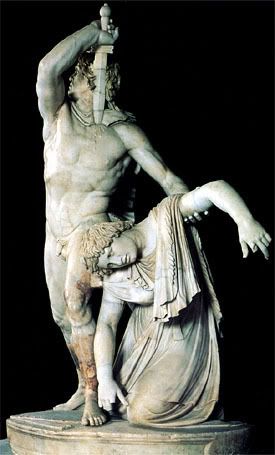 Gaulish language (Wikipedia)
Gaulish language (Wikipedia)
The Gaulish (also Gallic) language is an extinct Celtic language that was spoken by the Gauls, a people who inhabited the region known as Gaul (Cisalpine and Transalpine) from the Iron Age through the Roman period. It was historically spoken through what are now mainly France, northern Italy, Switzerland, eastern Belgium, Luxembourg and western Germany before being supplanted by Vulgar Latin and various Germanic languages from around the 4th century onwards. Gaulish is paraphyletically grouped with Celtiberian as Continental Celtic. Lepontic is considered to be either a dialect of or a language closely related to Gaulish. Galatian is the form of Gaulish spoken in in Asia Minor after 281 BC.
Gaulish is a P-Celtic language, though some inscriptions (e.g. the Coligny Calendar) potentially show Q-Celtic characteristics (however, this is a matter of debate among Celticists). Gaulish has a very close relationship to Insular Celtic (Goidelic and Brythonic), and many forms are identical in the two. Epigraphical remains have been uncovered across all of what used to be Roman Gaul, which covered modern France, as well as parts of Switzerland, Italy, Germany, and Belgium.
History
The earliest Continental Celtic inscriptions, dating to as early as the 6th century BC, are in Lepontic, found in Cisalpine Gaul and were written in a form of the Old Italic alphabet. Inscriptions in the Greek alphabet from the 3rd century BC have been found in the area near the mouths of the Rhône, while later inscriptions dating to Roman Gaul are mostly in the Latin alphabet. According to Julius Caesar, the Gauls (Galli in Latin; Caesar tells us that they called themselves Celtae in their own tongue) were one of three groups who inhabited Gaul, the other two being the Aquitani and the Belgae.
According to his treatise On the Detection and Overthrow of the So-Called Gnosis, Saint Irenaeus of Lyon still needed to preach in Gaulish in his diocese during the last quarter of the 2nd century AD. Saint Jerome (ca. 340-425) remarks in a commentary on St. Paul's Epistle to the Galatians that the Treveri spoke almost the same language as the Galatians. Gregory of Tours wrote in the 6th century that a sanctuary in the Auvergne was "called Vasso Galate in the Gallic tongue", which has been taken to mean that Gaulish was still spoken in the region in his time. However, his remark primarily refers to the linguistic origin of the place name, not necessarily to the survival of the language.
Inscriptions are often difficult to interpret and reveal only fragments of continuous language.
Today, the French language contains approximately 150 (if we exclude the dialectal and the derived words) up to 180 words known to be of Gaulish origin, most of which concern pastoral activity, that is the largest stock of Celtic words in a Romance language, that could contain all together a stock of about 400 words.
**************************************************
It goes without saying that few people identify the defeat of the Gauls at the hands of the Romans with the initial conquest of Cisalpine Gaul. This defeat was not the usual political defeat, but the absolute defeat of an entire culture, language, and spirituality. The Romans were also good at historical revisionism to suit their political ends. It shouldn't be forgotten that the Etruscans also opposed the Romans, even allying themselves with the Cisalpine Gallic tribes.
.

No comments:
Post a Comment